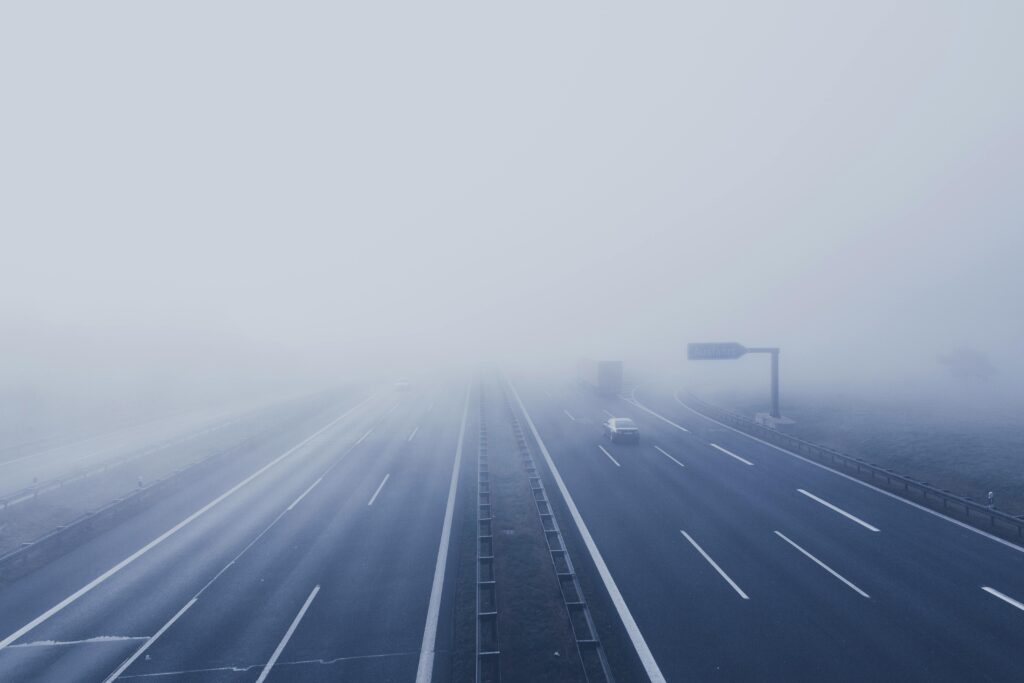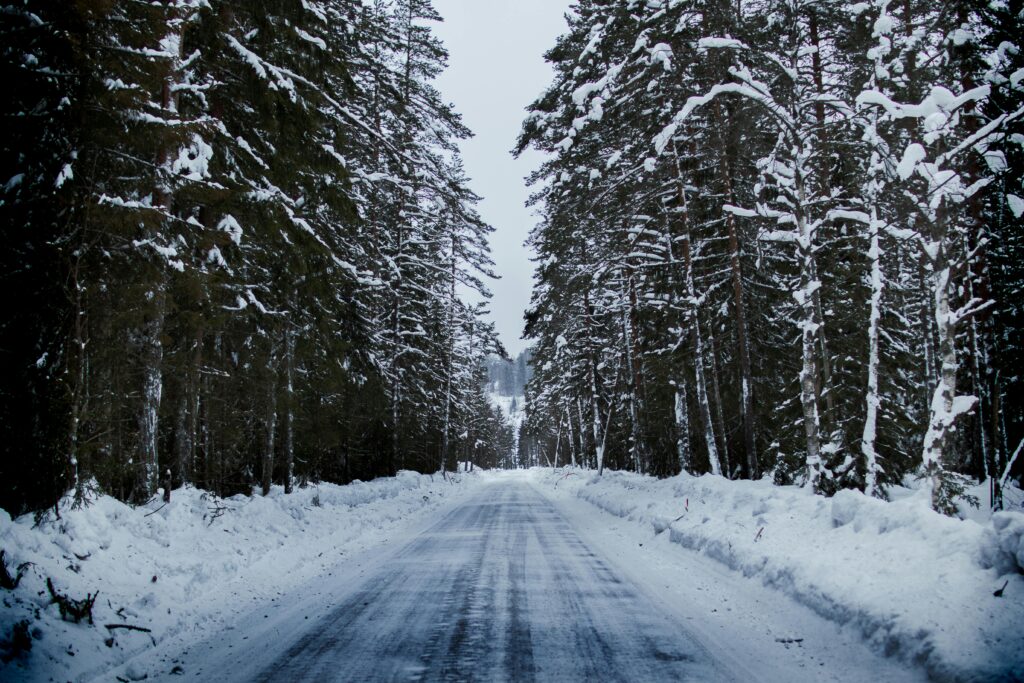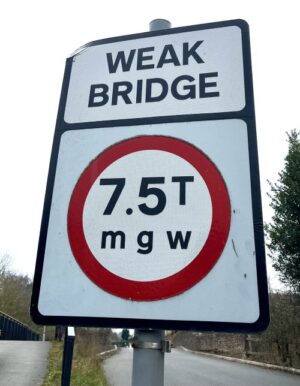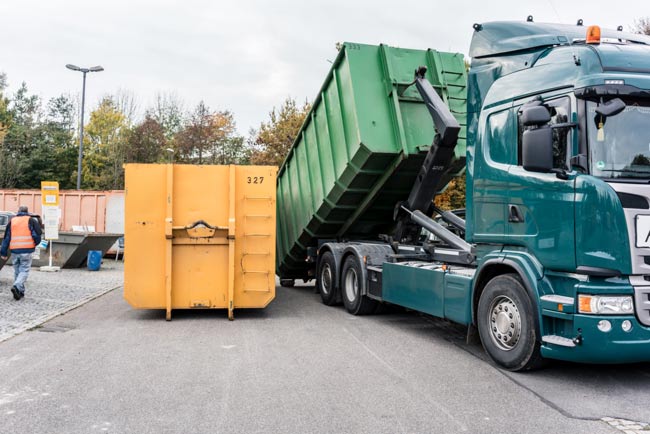13% of all serious collisions involve poor weather and almost 80% of those involve rain. If the Beast from the East descends this year these tips for winter HGV driving will help to keep you safe on the roads whatever the weather.
Sleigh Ride (or how to make sure you’re ready for winter driving)
HGV drivers face significant threats from winter road conditions because their vehicles are so much larger and heavier than others. This list of winter driving checks and tips will help to keep those threats to a minimum and keep your drivers safe.
Baby it’s cold outside (or be prepared!)

Before you set off on your journey make sure you have a winter driving survival kit packed in your cab in case of emergency. This should contain:
- De-icer and ice scraper
- Shovel and bag of salt
- Jump leads and a torch
- Blanket and extra warm clothes
- Bucket and tissue paper
- Food with a long use-by date, a flask of hot water and plenty of soft drinks
- High visibility jacket and sunglasses
It also pays to keep at least a quarter of a tank of fuel at all times in case you find yourself stranded or stuck in traffic jams or need to take lengthy diversions due to road closures.
[He’s] Making a list and checking it twice (or make sure you check your vehicle)
Carry out your daily walkaround vehicle checks but pay particular attention to:
- Tyres – look for wear, check pressure and balance
- Battery – check power levels and charging system
- Wipers – make sure they’re working and are free from ice and snow
- Fluid levels – keep these topped up
- Exhaust – make sure it is clear of snow
Before setting off drivers must be able to see, so make sure you clear all snow, frost and ice from all windows – and from areas such as the roof, where it could otherwise fall off in to the path of other drivers. This is a stipulation of rule 229 in the Highway Code. It goes on to add that a driver must ensure that all lights are clean and number plates are clearly legible. Mirrors and windows must be demisted thoroughly.
Driving home for Christmas (or before you set off)

Whilst planning your route a good tip is to build in allowances for a longer journey time. Winter driving can be especially complicated for HGV drivers as road closures and blockages could mean lengthy alternative routes as not all roads can accommodate HGVs.
Make sure you check weather conditions and get weather information for your route before setting off. It is also essential that you keep up to date with changing weather conditions via your radio or any apps that you use and by calling in to base regularly. The highway code (rule 228) requires drivers to check local forecasts and be sure not to drive in adverse weather conditions unless a journey is essential. More information on driving in adverse weather conditions is available from the UK government here.
Having a good telematics system makes keeping in touch with your team really easy. Knowing where your drivers are and their routes makes it easier for alternative route planning.
White Christmas (or driving in winter weather conditions)
Winter weather brings it own set of challenges for HGV drivers. It pays to be mindful of hazards caused by snow, rain, fog and ice which all impact on driving conditions.
The key rule to remember is to reduce your pace and give yourself space. Careful driving will give you the chance to respond to weather hazards, where sudden sharp movements can be even more dangerous than in normal driving conditions.
- Slow down and drive at a steady pace with less reliance on the brakes.
- Allow extra space – it is good practice to allow ten times the normal stopping distance when driving in snow and ice.
- Give plenty of warning to other drivers when you’re changing lanes and don’t feel pressured to match the speed of other drivers.
It’s also worth remembering that getting in and out of the cab of an HGV can become hazardous in winter as steps can become slippery with ice. Always maintain three points of contact when using the steps to avoid falling and wear a high visibility jacket, especially in poor driving conditions.
- Black ice
Driving on winter roads can be unnervingly quiet if there’s black ice. A thin, transparent layer of ice will make the road look wet but a tell-tale sign is that there won’t be any spray from other vehicles.
- Fog
Always drive with dipped lights in fog and driver slowly. Fog causes limited visibility and can be disorientating when driving.
- Heavy Rain
Aquaplaning is especially dangerous when driving an HGV given the sheer size and weight of the vehicle. If you should start aquaplaning you must slow down and hold the steering wheel straight, easing off the accelerator whilst avoiding heavy braking.
Whatever the conditions that you’re driving in make sure that you know when to stop driving (and accept that the conditions are too challenging and dangerous). Safety should always come first. Try to find a safe place to stop, preferably at a service station rather than just on the road side.
Although the focus of this article has been winter HGV driving, it is good practice to be aware of hazards presented during other seasons. Fallen leaves in Autumn can cause slippery road surfaces and also hide pot holes etc in the road. Dark mornings and low sun can dazzle drivers in Spring and Autumn too.
Don’t wait for winter, practice safe driving throughout the year.
Load security
Winter weather conditions can affect the security of your load – moisture can cause strappings to slip and covers can blow loose in strong winds. Make sure that you check your load security at frequent and regular intervals on your journey to ensure that your cargo remains safe. Check out our article on load security here.
Frequently Asked Questions
How can I prepare for winter driving?
Make sure your vehicle is ready for its journey and consider that the journey may take longer due to adverse weather conditions. Check tyres, wipers, lights, the vehicle’s battery and the heating/demisting system. Also make sure you have drinks and snacks and warm clothing.
Where can I get more information on driving in winter?
FORS (Fleet Operator Recognition Scheme) have published a handy guide to driving in winter. Aimed at drivers of HGVs, this contains information about essential winter driving kit, vehicle checks and journey planning.
What should I do if my journey time increases due to adverse weather conditions?
If winter weather causes your journey time to increase you must ensure that you follow driver hours rules and record your journey on your smart tachograph. Never exceed your legal hours to try to keep deliveries on track.




